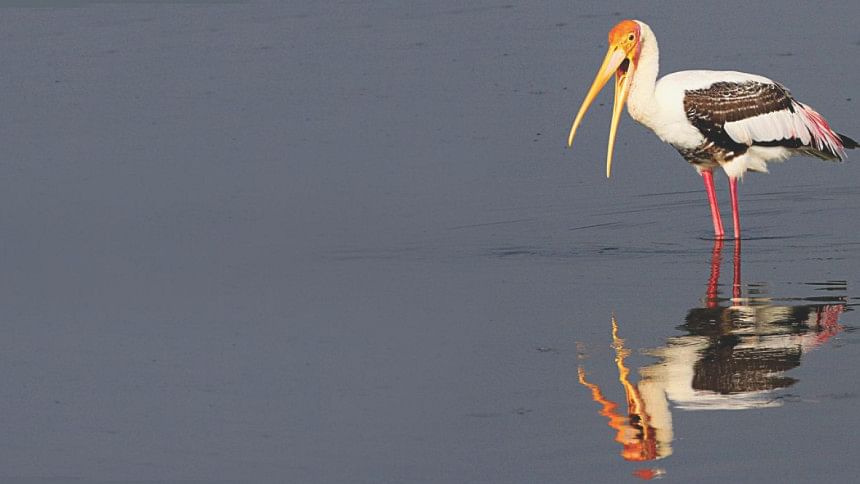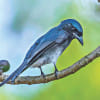Nature Quest: Padma banks painted red

A large flock of very rare and colourful birds has brightened the banks of Padma river near Rajshahi City recently. The birds called Painted Stork thronged the shallows and shoals before the birdwatchers and photographers of the city.
Colours of the bird's enormous bill, naked head and very long legs are of various shades of pink and red. Its tail sports several casual brush-stokes of vermilion that validates the very name "Painted Stork". It is the most colorful of the 20 species of storks of the world and the most threatened of the six species of storks being seen in Bangladesh today.
There were more than 150 birds in the flock seen at the riverbank in Rajshahi. Such a big flock of Painted Stock anywhere in the world is a spectacle; in Bangladesh it's a first in a century. Painted Stork occurs only in the Oriental region and is a very rare winter visitor to the coast and the banks of our large rivers. In the past 50 years, there were only a handful of sightings of this rare bird in Bangladesh; and only a few birds were seen in each sighting. Arrival of this ample flock in the cold winter days was a shot in the arm to our faint aspirations to see the wetlands of Bangladesh today as hospitable to these birds as it had traditionally been.
Bangladesh was once a great home to the storks. Seven species of the birds lived in and around our countless marsh lands and bayous.
Storks are, however, large scavenging birds needing substantial areas of wetland for survival. When the vast swamps of Bangladesh fragmented and dwindled, so did the populations of storks.
Today only two species called Asian Openbill and Lesser Adjutant live here round the year; and four species named Painted Stork, Asian Woolyneck, Black-necked Stork and Black Stork have all become very rare winter visitors. With the exception of the Asian Openbill, all species of storks in Bangladesh are threatened with extinction in not so distant future. The largest of our storks, Greater Adjutant, has already gone extinct in Bangladesh. "Red List of Bangladesh" published by IUCN in 2015 has painted this depressing picture of the storks in this country.
Except for the three South American species termed Wood Stork, Jabiru, and Maguari, the storks are mostly Afro-Asian birds. Australia has a single species of stork, namely Black-necked Stork; and North America has no stork at all. Of the 17 species of storks of the two conjoined continents of Africa and Asia, only two species named White Stork and Black Stork visit Europe seasonally. People of Europe have always valued the visitations of those storks and eagerly played their part as very appreciative hosts.
With two resident species and four species of visiting storks, Bangladesh is wealthier in stork diversity compared to any country in Europe. To these great storks could we not be worthy hosts like the Europeans and check degradation of a few wetlands the storks consider their winter home!

 For all latest news, follow The Daily Star's Google News channel.
For all latest news, follow The Daily Star's Google News channel. 








Comments